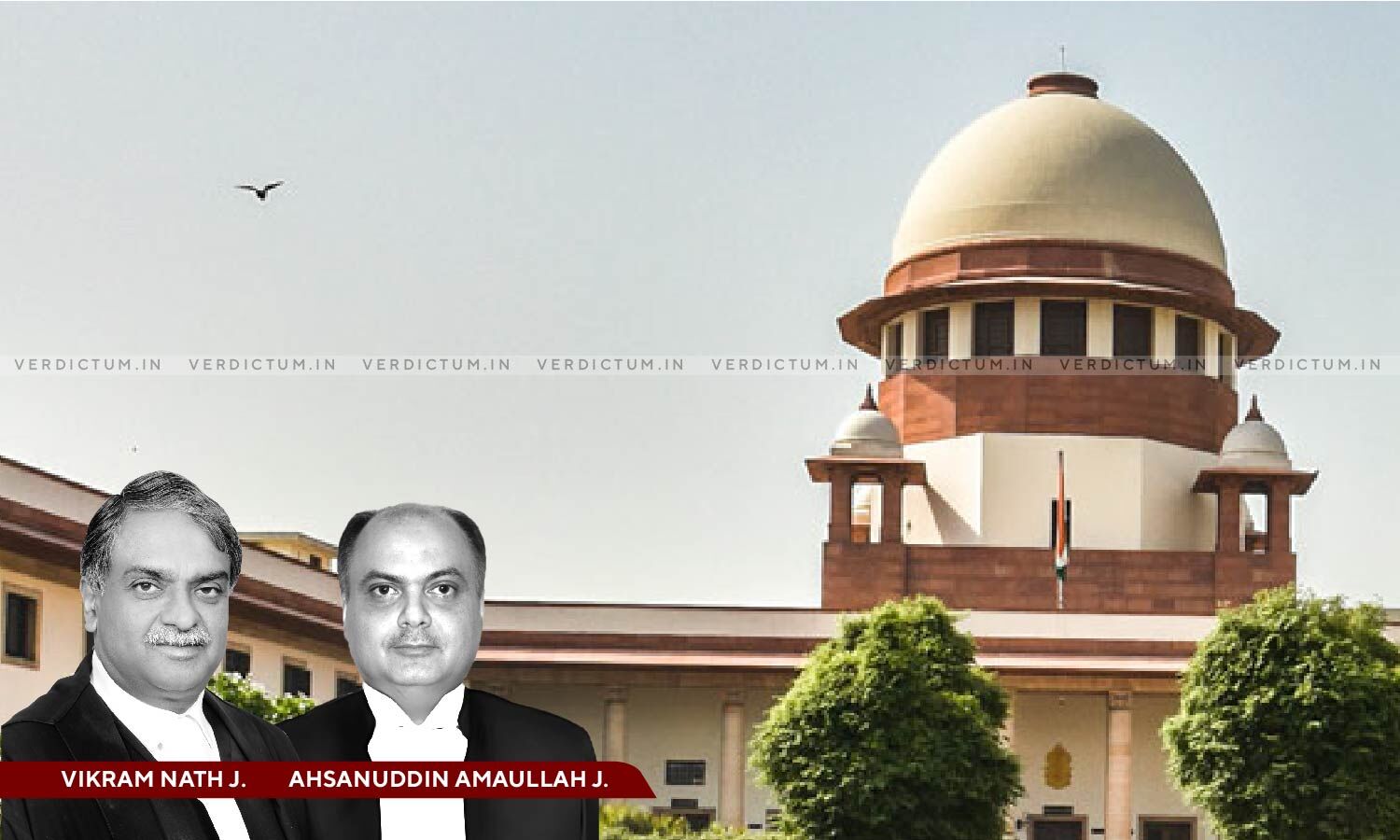Granting 100% Reservation To Scheduled Tribes Was An Illegal Exercise: SC Reiterates Over Infructuous Appeals
The Supreme Court on the basis of its earlier judgment in Chebrolu Leela Prasad Rao and Ors v. State of Andhra Pradesh and Ors. (2021) 11 SCC 401, where an impugned Government Office Memorandum (G.O.) granting 100% reservation to the Scheduled Tribes was held to be unconstitutional, opined that since the matter stands settled, therefore the appeals are infructuous.
The issue that was challenged was, that through the memorandum, the erstwhile State of Andhra Pradesh had provided 100% reservation to the Scheduled Tribe candidates out of whom 33.1/3% ought to be women for the post of teachers in the schools in the scheduled areas in the State of Andhra Pradesh.
Noting that all subsequent memos would automatically lapse as the principle Government order has been set aside, a bench of Justice Vikram Nath and Justice Ahsanuddin Amaullah observed, “…since the Constitution Bench had saved the appointments and their promotion to be considered in accordance with appropriate service rules, nothing further survives in these appeals. The same are rendered infructuous as it would stand covered by the judgment of the Constitution Bench in Chebrolu Leela Prasad Rao. Accordingly, the appeals are disposed of in terms of the authoritative pronouncement…”.
The State of Andhra Pradesh had issued a G.O. dated January 10, 2000 providing for 100% reservation in favour of local scheduled tribal candidates for the post of teacher in all schools situated in Scheduled Areas. Then it further issued two memos stating that earlier would also apply to promotion also giving 100% reservation to the local tribals. Subsequent to which through another GO was issued giving retrospective effect w.e.f. November 5, 1986.
The Andhra Pradesh High Court had upheld the memos being “explanatory and consequential in nature”.
The Constitution Bench of the Supreme Court then in the appeals, while holding the G.O. to be unconstitutional, saved the appointments so made under the memo but conditionally, which were subject to certain riders. And further quantified the cost of appeals at Rs. 500000 which wad to be shared equally by the States of Andhra Pradesh and Telangana.
In Chebrolu Leela Prasad Rao, the pertinent questions before the Court were:
(1) What is the scope of paragraph 5(1), Schedule V to the Constitution of India?
(a) Does the provision empower the Governor to make a new law?
(b) Does the power extend to subordinate legislation?
(c) Can the exercise of the power conferred therein override fundamental rights guaranteed under Part III?
(d) Does the exercise of such power override any parallel exercise of power by the President under Article 371D?
(2) Whether 100% reservation is permissible under the Constitution?
(3) Whether the notification merely contemplates a classification under Article 16(1) and not reservation under Article 16(4)?
(4) Whether the conditions of eligibility (i.e., origin and cut-off date) to avail the benefit of reservation in the notification are reasonable?"
A bench of Justice Arun Mishra, Justice Indira Banerjee, Justice Vineet Saran, Justice M.R. Shah and Justice Aniruddha Bose in its judgment dated April 22, 2020 had then opined,
"...It is rightly apprehended by appellants that the State may again by way of misadventure, resort to similar illegal exercise as was done earlier. It was least expected from the functionary like Government to act in aforesaid manner as they were bound by the dictum laid down by this Court in Indra Sawhney (supra) and other decisions holding that the limit of reservation not to exceed 50%. There was no rhyme or reason with the State Government to resort to 100% reservation. It is unfortunate that illegal exercise done in 1986 was sought to be protected by yet another unconstitutional attempt by issuing G.O.Ms. No.3 of 2000 with retrospective effect of 1986, and now after that 20 years have passed. In the peculiar circumstance, we save the appointments conditionally that the reorganised States i.e. the States of Andhra Pradesh and Telangana not to attempt a similar exercise in the future. If they do so and exceed the limit of reservation, there shall not be any saving of the appointments made, w.e.f. 1986 till date. We direct the respondent States not to exceed the limits of reservation in future...".
Cause Title: The Government of Andhra Pradesh & Ors v. M. Rama Rao & Ors. etc
Click here to read/download the Order












